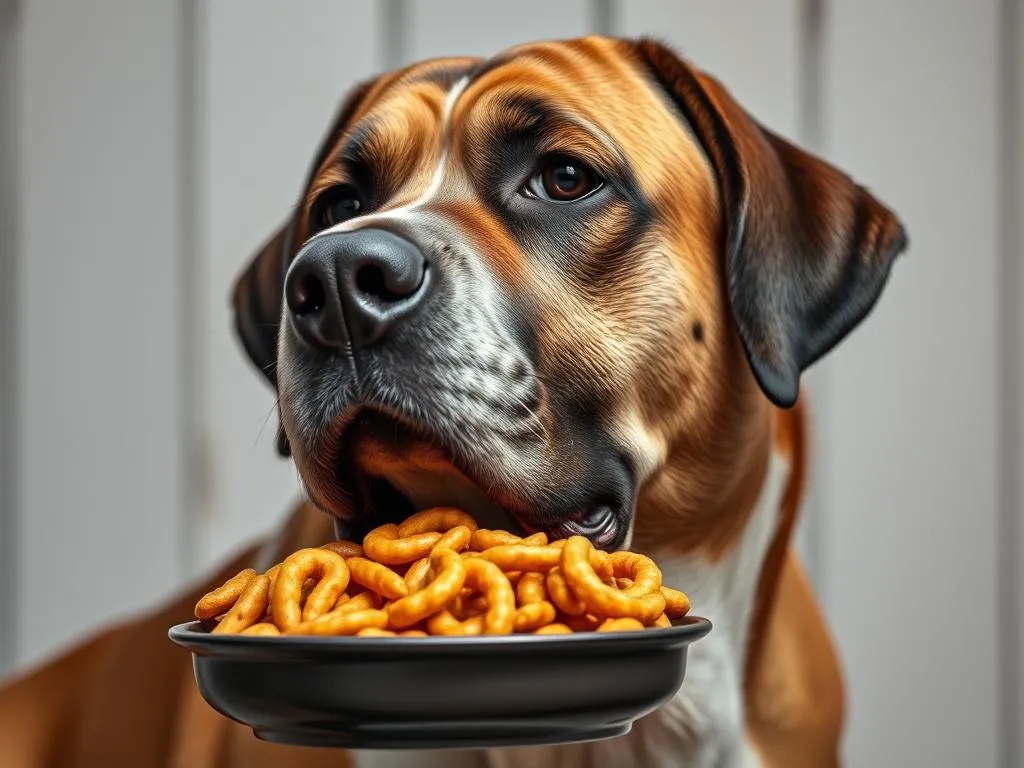
Introduction
Choosing the right nutrition for your dog is paramount for their overall health and well-being. Large breed dogs, in particular, have unique dietary requirements that differ significantly from their smaller counterparts. These dogs not only require a balanced diet to support their size but also need specific nutrients to ensure healthy growth and maintain joint health. When searching for the best large breed dog food, it’s essential to understand these distinct needs to provide the best care for your furry friend.
Understanding Large Breed Dogs
Definition of Large Breed Dogs
Large breed dogs are typically classified as those that weigh 50 pounds or more when fully grown. Breeds such as Labrador Retrievers, German Shepherds, Golden Retrievers, and Great Danes fall into this category. These dogs often exhibit common characteristics, including a robust frame, increased strength, and a generally friendly demeanor. However, their size also places them at risk for specific health issues, making it critical to address their nutritional needs effectively.
Nutritional Needs of Large Breed Dogs
Large breed dogs have distinct dietary requirements compared to small or medium breeds. Their diets must provide adequate levels of protein, fat, and carbohydrates, ensuring they receive the proper energy and nutrients. One crucial aspect of nutrition for large breeds is managing their growth rate, as rapid growth can lead to joint problems and other health issues.
While small breed dogs may thrive on higher fat diets, large breeds require a balanced approach to prevent obesity and related health concerns. It’s essential to focus on nutrient-dense foods that promote healthy muscle development and joint support.
Key Nutritional Components for Large Breed Dogs
Protein
Protein is a fundamental component of a dog’s diet, especially for large breeds that need it for muscle maintenance and growth. High-quality protein sources, such as chicken, beef, and fish, are recommended. For large breeds, the ideal protein level ranges between 18% to 30%, depending on their age and activity level.
Supplementing with animal-based proteins ensures that large breed dogs receive essential amino acids, which are critical for their overall health. Look for dog foods that list real meat as the first ingredient, as this indicates a higher quality product.
Fat
Fats play a significant role in providing energy, maintaining a healthy coat, and supporting overall bodily functions. For large breed dogs, the recommended fat content in their food should be around 8% to 15%. Omega-3 and omega-6 fatty acids are particularly important as they help reduce inflammation and support joint health.
Sources of healthy fats can include fish oil, flaxseed oil, and chicken fat. A diet rich in these beneficial fats will contribute to your dog’s vitality and skin health.
Carbohydrates
While carbohydrates are not essential in the same way that proteins and fats are, they can provide a valuable source of energy. Fiber is critical for digestion and helps maintain a healthy weight, preventing obesity in large breeds.
Opt for complex carbohydrates that are easily digestible, such as sweet potatoes, brown rice, and oats. These sources not only provide energy but also support gastrointestinal health, which is particularly important for larger dogs prone to digestive issues.
Vitamins and Minerals
Essential vitamins and minerals are vital for large breed dogs to thrive. Vitamins A, D, E, and various B vitamins support immune function, energy metabolism, and overall health. Additionally, maintaining a proper calcium-to-phosphorus ratio is crucial for large breed puppies to ensure healthy bone development and prevent skeletal disorders.
A well-balanced dog food will contain a comprehensive blend of these nutrients, promoting optimal health and development.
Choosing the Best Large Breed Dog Food
Types of Dog Food Available
When it comes to selecting the best large breed dog food, pet owners have various options, including:
- Dry kibble: Convenient and shelf-stable, dry kibble is a popular choice. Look for high-quality brands with meat as the primary ingredient.
- Wet food: Canned food can be more palatable for picky eaters and provides additional moisture, which can be beneficial for hydration.
- Raw diet: Some pet owners opt for raw diets, believing they are more natural. However, it’s essential to ensure these diets are balanced and safe to prevent bacterial infections.
- Homemade diets: Preparing food at home can give you control over ingredients. However, it’s crucial to consult with a veterinarian to ensure these diets meet all nutritional needs.
Each type of food has its pros and cons, making it essential to consider your dog’s preferences, health needs, and your lifestyle when making a selection.
Reading Dog Food Labels
Understanding dog food labels is crucial in identifying quality products. Look for ingredient lists that prioritize real meat over meat by-products. High-quality dog foods will also avoid harmful ingredients such as fillers (e.g., corn, soy), artificial preservatives, and colors.
Key indicators of a good dog food include:
- Short ingredient lists with recognizable items.
- Clear sources of protein and fats.
- Transparency regarding the sourcing of ingredients.
Familiarizing yourself with these labels will empower you to make informed choices for your large breed dog.
Recommended Brands for Large Breed Dogs
Several brands stand out for providing high-quality nutrition specifically designed for large breed dogs. Some of the top-rated options include:
- Blue Buffalo: Known for its natural ingredients and no artificial additives, Blue Buffalo offers formulas rich in protein and healthy fats.
- Royal Canin: This brand has a tailored approach, offering breed-specific formulas that meet the unique needs of various large breeds.
- Hill’s Science Diet: Recommended by veterinarians, Hill’s focuses on scientifically formulated recipes that support overall health and wellness.
Customer reviews often highlight the positive changes in their dogs’ health, energy levels, and coat condition after switching to these brands.
Special Considerations for Large Breed Dogs
Feeding Puppies vs. Adults
Nutritional needs differ significantly between large breed puppies and adult dogs. Puppies require a diet that supports their rapid growth while also being mindful of their joint health. Typically, large breed puppy food will have controlled levels of calcium and phosphorus to prevent skeletal issues.
Feeding schedules for puppies often involve multiple small meals throughout the day, while adult dogs can transition to two meals. Portion sizes should be adjusted based on activity level, maintaining a healthy weight to mitigate the risk of obesity.
Common Health Issues
Large breed dogs are prone to specific health issues such as hip dysplasia, obesity, and heart conditions. Proper nutrition plays a vital role in preventing and managing these concerns. Providing a balanced diet rich in essential nutrients can help maintain joint health and support a healthy weight.
Regular vet visits and consultations about dietary adjustments can also help manage and prevent health problems in large breeds.
Transitioning Foods
When switching to a new dog food, it’s important to do so gradually. Start by mixing the current food with the new food over a week, gradually increasing the new food’s proportion. This helps prevent digestive upset and allows your dog to adjust to the new flavors and textures.
Watch for signs of food intolerance or allergies, such as itching, digestive issues, or changes in behavior. Consulting with a veterinarian can provide guidance and support during this transition.
Homemade and Raw Diets for Large Breeds
Benefits and Risks
Homemade diets can offer control over ingredients, allowing owners to avoid fillers and artificial additives. However, these diets must be carefully balanced to ensure they meet all of your dog’s nutritional needs.
Raw diets, while popular among some pet owners, carry risks such as bacterial infections and potential nutritional imbalances. It’s crucial to do thorough research and consult with a veterinarian before adopting either of these feeding methods.
Recipe Ideas
If you’re considering homemade diets, here are a few recipes that cater to large breed dogs:
- Chicken and Rice:
- 2 cups cooked brown rice
- 1 cup cooked chicken, shredded
- 1/2 cup carrots, chopped
-
1/2 cup peas
-
Beef and Sweet Potato:
- 1 pound ground beef
- 1 cup sweet potato, cubed and cooked
- 1/2 cup spinach, chopped
- 1/4 cup carrots, chopped
Always consult with a veterinarian to ensure that homemade meals provide adequate nutrition and are balanced for your large breed dog.
Conclusion
Selecting the best large breed dog food is essential for ensuring your dog’s health, growth, and overall well-being. Understanding their unique nutritional needs, reading labels, and choosing high-quality ingredients can make a significant difference in your dog’s quality of life. For personalized dietary advice and recommendations, consulting with a veterinarian or a veterinary nutritionist is always a wise choice. By prioritizing a balanced diet, you can help your large breed dog lead a happy and healthy life.









